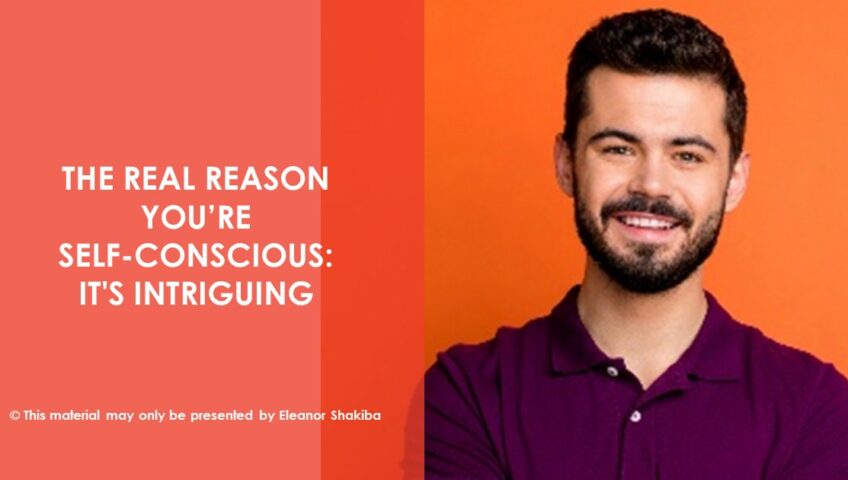People talk about self-consciousness as though it’s a bad thing. I prefer to see it as an extension of self-awareness. Drawing a distinction between these two ways of thinking about yourself can be helpful. Especially if you’re prone to second-guessing yourself when interacting with others. In other words, if your self-awareness has gone too far, there is something you can do about it.
So what is the difference between being self-aware and being self-conscious? After all, we often speak of self-awareness as though it’s a valuable characteristic. Yet, on the other hand, we seem to assume that self-consciousness is exactly the opposite. Here’s how psychologists define the two states. Self-awareness involves thinking about your actions or thought patterns as you experience them. Being self-aware is a foundation for learning from experience.
Self-consciousness involves adding a critical tone to your self-awareness. This makes it a catalyst for self-doubt and low confidence. However, by reframing your relationship to ‘thinking about thinking’, you can learn to switch from self-conscious to self-aware quickly and easily.
Doing this means capitalising on the fact that both self-consciousness and self-awareness involves turning your attention to words. Essentially, both processes involve ‘thinking about your thinking’. This is one of the most remarkable things your mind is capable of. So instead of perceiving it as a flaw, why not frame it as one of your talents? Now all you need to do is shift the way you apply that talent. There are two simple ways to do this. Both will help you to feel more relaxed and shift from self-conscious to self-aware in just a few moments.
Technique 1: turn your critical voice into a teaching voice
When you’re feeling self-conscious, the real problem is what you are thinking about your ‘self’. There are different ways that you can think about self. The first is to be aware of yourself as an independent agent of action. The second is to think about yourself as being viewed by others. When you’re thinking self-consciously, you’re likely to be assuming that other people are judging you. This assumption is then reflected in the way you talk to yourself internally. The simple solution is to challenge your internal voice. For example, you might tell yourself that others are focused on themselves, not you. Or you might dispute the critical voice by asking, “What evidence is there that others are thinking that?”
Technique number two: focus outwards, not inwards
If focusing on yourself is proving uncomfortable, shift the direction of your attention. This is such a simple strategy, but so few of us use it! The next time you’re feeling self-conscious, try it out. Look around and find someone or something else to focus on. Challenge yourself to find something intriguing or beautiful. Look for positives in your environment. Or if you’re in conversation with someone else, ask questions to draw them out. Think of yourself as an interviewer who is trying to bring out the best in your conversational partner.
Both of these techniques are easy to apply and highly effective. If you’re working on boosting your confidence, try them out. And if you need more help, remember that we are always here.
About the author: Eleanor Shakiba
Eleanor is a positive psychology trainer and coach. She works with ‘positive deviants’ to build positive mindsets, proactive communication and purposeful leadership. Since 1994, Eleanor has been teaching talented people how to think, communicate and behave in ways that build success. She holds qualifications in Social Anthropology, Positive Psychology, Counselling, Coaching, Adult Education and Neuro Linguistic Programming. She’s known for her dynamic training style and passion for experiential learning techniques. Download a copy of Eleanor’s free ebook Positive Psychology Toolkit for HR and L&D Practitioners.
